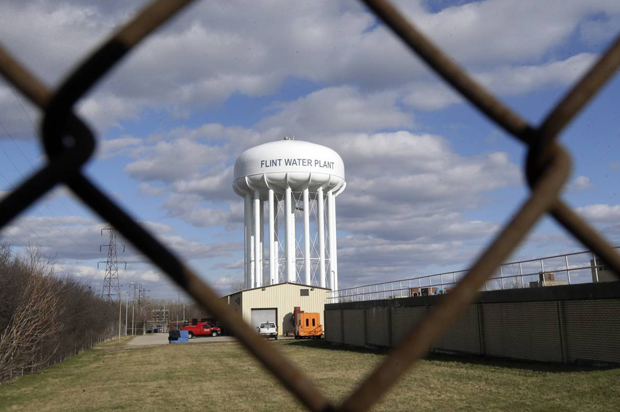Over 8,000 foreclosure warnings were mailed to Flint residents in April for failure to pay outstanding water bills.
The letters arrived just weeks after the city put an end to a program that helped 65 percent of resident’s pay their water bills, even though Flint’s water has yet to be declared safe to drink without a filter. Under a settlement agreement reached in March with the city’s residents, the state is still obligated to provide free bottled water and to ensure that each home has a functioning water filter. The settlement also requires the city to replace the nearly 18,000 lead-tainted pipes by 2020.
Many residents have refused to pay water bills for contaminated, lead-poisoned water, since the city switched the water source from a lake to the Flint River in 2014 to cut back costs. Last month, the city proceeded to distribute shutoff notices for those who continued to not pay their water bills. But as Flint resident Melissa Mays, and one of the plaintiffs in the lawsuit, told Think Progress, bottled water was a better alternative than paying for poison.
The tax liens that thousands of residents received last week were unexpected and resident’s had no time to save or prepare for the notices. City spokeswoman Kristin Moore said people have until February 2018 to pay off their debts or face foreclosure.
“And the city called the 8,000 letters ‘routine’ in a statement — though no one got one last year, in the aftermath of the lead poisoning crisis,” The Washington Post reported. Moore added, “We are legally obligated to follow this process.”
“Flint families should not have to pay for water that they still cannot drink, and they certainly should not lose their homes over this ongoing water crisis that was caused by the callous decisions of state government,”Rep. Daniel Kildee, a Democrat, wrote in a statement Wednesday.
Thirteen state officials have been charged in connection with the water crisis.
Flint Mayor Karen Weaver also released a statement saying she agreed with those who opposed the collector’s process but said that the city is obligated by law to follow through. “As the Mayor of Flint and as a Flint resident, I understand the concerns that have been raised and I am working to see if any changes or something can be done to help those affected by this,” she said, “especially given the extraordinary circumstances we have endured due to the water crisis.”
More than 4o percent of Flint’s population lives below the poverty line and so the foreclosure notices and outstanding water bills are dire. As Mays told Think Progress, “We don’t live in Flint because we’re wealthy. So this isn’t something like a drop in the bucket for us, it’s huge.”
For Mays, this means neglecting other bills, such as mortgage, car payments and health care bills in order to gather the funds to pay off the overdue water bill and to ensure that her family still has a home to live in. “There’s always an option,” Mays said. “But this is the one time there’s not.”

